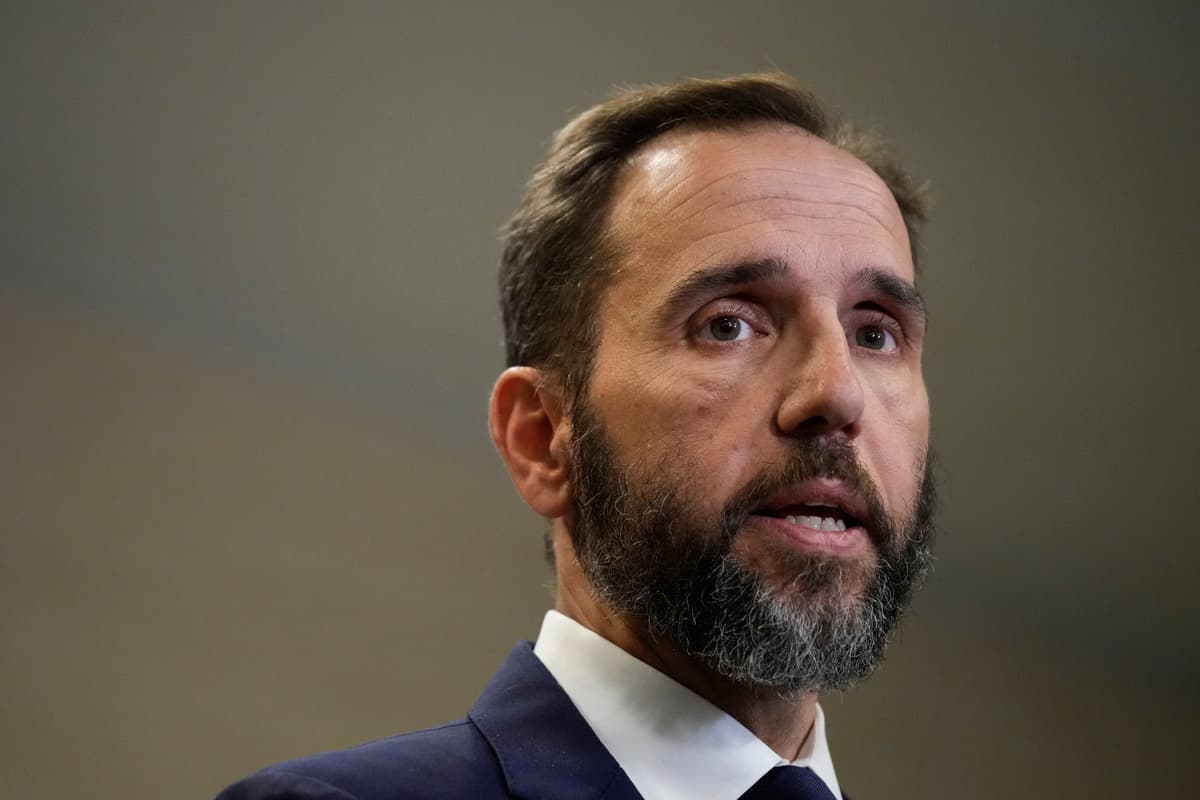Trump’s Triumph Over Jack Smith Sends the Special Counsel Toward Resignation and an Uncertain Future
The prosecutor could have one more opportunity to tell his side of the story.

If Special Counsel Jack Smith resigns before President Trump takes the oath of office for a second time, he will likely take his two criminal cases against the 45th president with him into the sunset.
Mr. Smith was hired by Attorney General Garland in November 2023, two days after Trump declared he would stand again for president. Now, Trump’s success in achieving that goal puts the prosecutor at an impasse born of immunity. The New York Times reports that he “plans to finish his work and resign along with other members of his team” before Trump takes office.
The special counsel regulations ordain that these prosecutors “shall comply with the rules, regulations, procedures, practices and policies of the Department of Justice.” One of those policies, first articulated in 1973 and reaffirmed multiple times since, is that “the indictment or criminal prosecution of a sitting President would unconstitutionally undermine the capacity of the executive branch to perform its constitutionally assigned function.”
While Mr. Smith retooled his indictment in response to the Supreme Court’s ruling in Trump v. United States that official presidential acts are presumptively immune, Trump’s taking of the oath of office would have frozen his Mar-a-Lago and January 6 prosecutions. Trump, once vested with the powers of the presidency, could instruct a new attorney general — he has reportedly nominated Congressman Matt Gaetz — to terminate Mr. Smith’s employment. Trump has vowed to fire the special counsel “within two seconds” of taking office.
Mr. Smith, with these obstacles sliding into view in the wake of Trump’s election win, requested and received a delay from Judge Tanya Chutkan to digest this “unprecedented circumstance” and to “determine the appropriate course going forward consistent with Department of Justice policy.” That appears to be a reference to the prohibition against prosecuting a president.
Those same regulations, though, ordain that “at the conclusion of the Special Counsel’s work, he or she shall provide the Attorney General with a confidential report explaining the prosecution or declination decisions reached by the Special Counsel.” The task then falls to the attorney general to determine if the “public release of these reports would be in the public interest, to the extent that release would comply with applicable legal restrictions.”
Mr. Garland could release such a report in the days before Trump is inaugurated, providing the special counsel with a final opportunity to have his say. Mr. Smith, though, has already issued a book-length brief on immunity, released by Judge Chutkan last month. That opus laid out the contours of the case the prosecutor built over the past two years. Mr. Smith could yet have more to say. This could include embarrassing — to Trump — disclosures about the Mar-a-Lago documents case, which had been considered the strongest of all the state and federal criminal cases against the 45th president before Judge Aileen Cannon threw it out.
The attorney general could also borrow a page from one of his predecessors, Attorney General Barr. In 2019 Mr. Barr released a four-page memorandum detailing the “principal conclusions” of Special Counsel Robert Mueller’s report on Russian interference in the 2016 election. The report itself was published three weeks later. Could Mr. Garland try to write his own version of the cases against Trump?
Messrs. Garland and Smith are likely discussing whether the government should request that the charges against Trump be dismissed without prejudice — meaning that they could be refiled at some later point. If they were to be dismissed with prejudice, meaning permanently, Trump’s DOJ would then have to refile them and dismiss them again. A judge, though, could look askance at that tactic as an abuse of the power to charge.
Also wanting a say are Republican lawmakers. Speaker Johnson, in comments on Tuesday, appeared to allude to Mr. Smith when he declared that “there were a lot of figures related to the justice department … that used lawfare against President Trump. There needs to be very serious accountability for that.” Congressmen Jim Jordan and Barry Louermilk have asked Mr. Smith to preserve all records related to his investigation.
Mr. Smith’s past could preview what comes next. He was prosecuting war crimes related to the Kosovo war when Mr. Garland hired him to investigate, and possibly try, Trump. Early in his career, he was an assistant district attorney at New York under Robert Morgenthau. Then as a federal prosecutor, he would rise to lead the DOJ’s Public Integrity section. Such opportunities in federal law enforcement will presumably be unavailable until at least 2029. An academic posting, though, could beckon.

